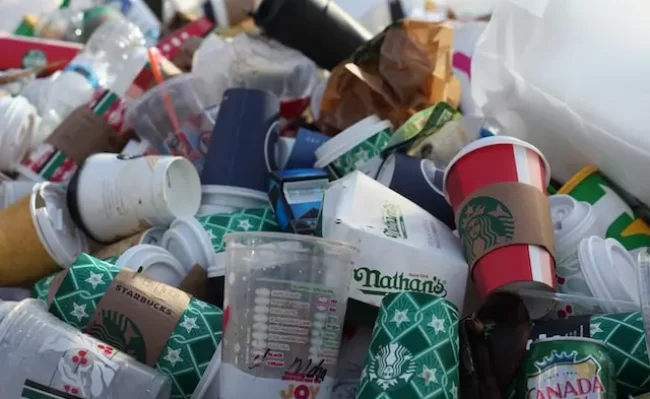Across the world, food waste is among one of the most urgent problems. Food outlets have difficulty managing food leftovers, excess food, and spoiled items. This is the main reason why startups are relying on and adopting solutions in order to optimize food waste management.
In fact, according to a report published by the Food and Agriculture Organization (FAO), around 1,3 billion tons of food is wasted every year around the world – which is worth an estimated $2.3 trillion, enough to feed approximately 820 million hungry people, four times over. That same report shows that if food waste were a country, it would be the world’s 3rd biggest source of greenhouse emissions, after the United States of America and China.
The Arab world also considerably contributes to global food waste. In fact, among the biggest food wasters in the world is the GCC: every year in Saudi Arabia, the average person wastes 427kg of food, and in the UAE, 197kg. The entire MENA region actually wastes up to 250 kilograms per capita a year of food. Public and private sectors have become committed to tackling this worrying issue by aligning their policies with some of the United Nations’ Sustainable Development Goals (SDGs). In fact, governments in the Middle East have pledged to now make concerted efforts to tackle this issue by cutting down 50% of their food waste and loss by 2030.
Here are some examples of startups fighting against food waste in the MENA region:
- TeKeya (Jordan): this social enterprise gives the possibility for restaurants, food providers, and food outlets to redistribute their extra food to sell their products before they expire. Food providers now have the option to sell their imperfect, untouched but healthy food to people for a discounted price.
- Uvera (Saudi Arabia): this biotech startup is using UV light exposure to increase food lifetime. This method – which is approved by US Food – destroys the DNA of the foodborne pathogens that cause food-borne illnesses and food spoilage. With no use of chemicals and just 30 seconds, the shelf life of fresh food is doubled.
- EroeGo (UAE): this online grocery store is focusing on the conscious consumer community in the UAE. It helps create a community of informed buyers who acknowledge the responsibility for the environmental impact of their purchases. The business model offers a platform that provides users with basic nutritional information, as well as an optimized purchase cycle for fresh product delivery.
- Foodeals (Morocco): this startup allows users to geolocate themselves and detect local businesses that offer promotions or unsold products of the day. It’s a win-win approach: consumers save money and shopkeepers transform their losses of earnings into turnovers.
Finally, food security is one of the numerous problems the world is facing and food waste is one of the most critical causes of it. Biotechnologies and startups play an important role when it comes to confronting this problem. Apart from redistributing excess food and changing customer habits, cultural awareness has a significant place in this matter.
Bibliography
KAWA News. (2022, 8 juin). 4 startups fighting against food waste in Mena. KAWA. https://kawa-news.com/en/4-startups-fighting-against-food-waste-in-mena/
The startups tackling food waste in Mena. (s. d.). Wamda. https://www.wamda.com/2021/04/startups-tackling-food-waste-mena
Food loss and waste. (s. d.). Food and Agriculture Organization of the United Nations. https://www.fao.org/nutrition/capacity-development/food-loss-and-waste/en/#:%7E:text=Across%20the%20globe%2C%20approximately%2014,levels%20(UNEP%2C%202021).
Food wastage in MENA and the role of startups tackling the issue. (2021, 2 mai). SAEntrepreneurs. https://www.saentrepreneurs.ch/index.php/2015-02-19-20-55-73/item/902-food-wastage-in-mena-and-the-role-of-startups-tackling-the-issue

